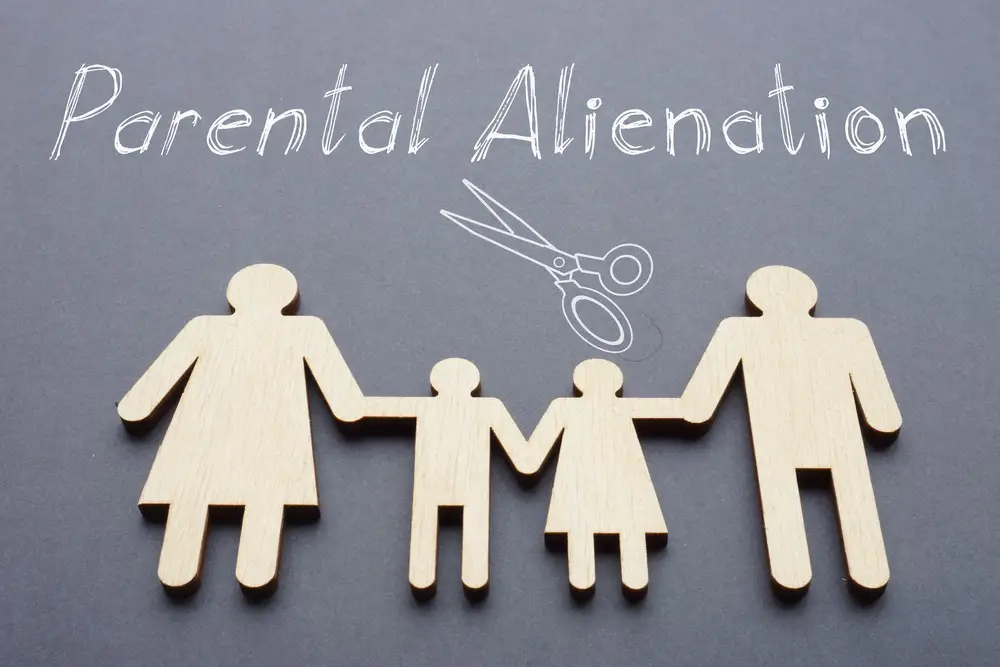As a BetterHelp affiliate, we receive compensation from BetterHelp if you purchase products or services through the links provided
Parental alienation is a heartbreaking and pervasive issue when one parent intentionally turns a child against the other. This emotional manipulation can have long-lasting effects on the child and the targeted parent, creating fractured relationships and heartache. Deprogramming parental alienation seeks to heal those broken family bonds and restore a healthy, loving relationship between the child and the targeted parent.
Understanding the root causes of parental alienation is crucial in addressing this complex issue. Various factors can contribute to a parent engaging in alienating behaviors, such as unresolved anger, jealousy, or a desire for control. Recognizing the signs and impact of parental alienation is an important first step in combating this destructive phenomenon.
Key Takeaways
- Deprogramming parental alienation aims to repair harmed parent-child relationships.
- Knowing the causes and symptoms of parental alienation is essential for combatting its negative effects.
- The legal system and compassionate communication can play a role in resolving and preventing alienation.
 Understanding Parental Alienation
Understanding Parental Alienation
The Concept of Parental Alienation
Parental alienation involves one parent manipulating a child to create an emotional distance between them and the other parent. This can occur during a high-conflict divorce or due to ongoing parental conflicts. The alienating parent uses various methods, including undermining the other parent, spreading false accusations, and limiting the child’s parenting time with the other parent. Realizing that parental alienation is a form of psychological child abuse is essential.
- It can negatively impact children’s emotional and psychological well-being.
- Recognizing the signs of alienation can help address the issue.
- A collaborative approach from parents, therapists, and legal professionals may be needed.
Effects on Children
Parental alienation can have severe long-term consequences for children, including:
- Loss of trust: Alienated children may have difficulty trusting others, including their parents and future romantic partners.
- Low self-esteem: The alienation process may make children feel unloved or unwanted, leading to low self-worth.
- Anger and confusion: Children may blame themselves or have conflicting emotions about their parent’s divorce and the alienating parent’s behavior.
- Mental health issues: Research suggests that alienated children are at a higher risk of developing depression, anxiety, and substance abuse problems.
To combat the effects of parental alienation:
- Encourage open communication with your child, and listen actively to their concerns.
- Validate their feelings and ensure they know they are loved, regardless of the alienating parent’s behavior.
- Be consistent and reliable in your parenting efforts.
- Seek professional help, such as a family therapist or a mental health professional.
Causes of Parental Alienation
Parental alienation can occur for various reasons, and understanding the causes can help you recognize and address the problem. This section will explore the primary factors contributing to parental alienation, focusing on divorce, separation, and high-conflict divorces.
Divorce and Separation
One of the most significant causes of parental alienation is the process of divorce and separation. When parents split up, it can lead to a dramatic change in the family dynamics, which may result in one or both parents attempting to manipulate their children’s emotions. Some contributing factors to parental alienation during divorce and separation include:
- Custody battles: Disagreements over child custody can create tension between parents and lead to actions that can result in parental alienation.
- Parental conflict: The emotional distance and resentment between separating parents can affect their ability to co-parent and inadvertently push a child to take sides.
- New partners: Introducing new partners into the family dynamic can cause feelings of insecurity and jealousy, which may exacerbate the alienation process.
High-Conflict Divorces
In high-conflict divorces, parental alienation becomes even more prevalent. The intense emotions and competitive atmosphere can further damage the relationships between the parents and children. Key factors in high-conflict divorces that contribute to parental alienation are:
- Negative communication: Parents may bad-mouth each other in front of their children, intentionally or unintentionally creating a hostile environment and influencing their opinions.
- Manipulative behavior: To gain control during divorce, a parent may manipulate their child’s emotions to turn them against the other parent.
- Lack of boundaries: When emotions run high, parents may overshare their personal issues and divorce details with their children, putting unnecessary emotional strain on them.
It’s essential to be aware of the potential causes of parental alienation and work on maintaining healthy relationships with your children, even in the most challenging situations. Open communication, mutual respect, and putting your children’s well-being first are key factors in preventing and addressing parental alienation.
 Recognizing Parental Alienation
Recognizing Parental Alienation
Parental alienation is a complex issue often arising during custody battles and divorce proceedings. Parents and other involved parties must recognize the signs and behavior patterns in both children and alienating parents.
Signs in Children
When dealing with parental alienation, look for the following signs in your children:
- Sudden rejection: Your child may suddenly and inexplicably reject one parent, often expressing fear, anger, or indifference towards them.
- Resistance to contact: Your child may resist or refuse to see or engage with the targeted parent.
- Negative change in perception: Your child may have a drastic and negative change in their view of the targeted parent, often based on false beliefs.
- Unreasonable demands: Your child may make excessive and unrealistic demands on the targeted parent to prove their love or worthiness.
Behavior Patterns in Alienating Parents
In addition to recognizing the signs in children, it’s essential to be aware of behavior patterns often exhibited by alienating parents:
- Undermining the other parent: The alienating parent may consistently discredit the targeted parent or question their competency.
- Controlling communication: The alienating parent may control, limit, or sabotage communication between the child and the targeted parent.
- Using the child as a weapon: The alienating parent may encourage the child to take sides, manipulate them, or use them to gain information about the other parent.
By identifying the signs and behavior patterns in both children and alienating parents, you can take appropriate steps to address and combat parental alienation. Maintaining your child’s best interests should always be your primary goal.
Impact of Parental Alienation
Parental alienation can significantly affect the mental health of all parties involved. As you navigate this challenging situation, you must know the potential consequences.
- Children’s mental health: Kids are affected the most, with increased risks of depression, anger, and fear. These emotions can lead to long-lasting negative impacts on self-esteem, trust, and interpersonal relationships.
- Parents’ emotional well-being: The alienated parent may experience various emotions, such as powerlessness, despair, and frustration. On the other hand, the alienating parent might display narcissism, anger, or manipulation traits.
Custody battles can become contentious when parental alienation is involved. It’s vital to handle these situations carefully to minimize harm to the children and prioritize their best interests. Here are some things to keep in mind:
- Legal considerations: Engage an attorney who understands the complexities of parental alienation cases. They can support you in presenting evidence demonstrating the adverse effects and help to protect your rights as a parent.
- Therapeutic interventions: Seek professional help in the form of therapy for both you and your child. This can assist you in building a stronger parent-child relationship and help them recover from the impact of parental alienation.
To create the best outcome for everyone involved, consider these tips:
- Remain patient and focused on your child’s needs, even when alienating parents is difficult.
- Communicate calmly and directly, avoiding any derogatory remarks about the alienating parent.
- If possible, pursue joint counseling or family therapy to address the underlying issues in a controlled environment.
Remember, when dealing with parental alienation, it’s crucial to prioritize the emotional and mental well-being of all parties involved – especially your child. By keeping lines of communication open and seeking professional support, you can navigate this challenging situation and foster healthier relationships.

Parental Alienation in the Legal System
Parental alienation is a challenging issue that often arises in the legal system, particularly in family law cases involving child custody and visitation. This section will explore how family law addresses parental alienation and its role in child custody and visitation decisions.
Family Law and Parental Alienation
In family law, parental alienation refers to the systematic manipulation and brainwashing of a child by one parent to significantly damage or destroy the child’s relationship with the other parent. Many jurisdictions recognize parental alienation as a harmful behavior that can have long-lasting effects on children, and judges are trained to identify and address this issue in court proceedings. Here are some ways family law deals with parental alienation:
- Establishing evidence: Courts require significant evidence to prove parental alienation. Expert witnesses, such as psychologists and child custody evaluators, might be involved to support the claim.
- Legal consequences: If a judge determines parental alienation has occurred, various legal consequences may follow, such as altering custody or visitation arrangements, ordering family therapy, or even holding the alienating parent in contempt of court.
- Prevention measures: Family law courts may attempt to prevent parental alienation by encouraging co-parenting, communication, and cooperation between the parents during and after the divorce process.
Child Custody and Visitation
Courts prioritize the child’s best interests when determining child custody and visitation arrangements. Parental alienation can significantly impact these decisions, as judges consider the child’s well-being. Here’s how parental alienation might impact custody and visitation:
- Sole custody: If a judge finds that one parent is engaging in parental alienation, they may award sole custody to the targeted parent as a corrective measure. This decision removes the child from the harmful influence of the alienating parent.
- Supervised visitation: In some cases, a judge might order supervised visitation for the alienating parent to ensure that the child’s time with that parent is free from manipulative behavior and harmful rhetoric.
- Co-parenting: In an ideal situation, both parents share decision-making responsibilities and physical custody of the child. However, effective co-parenting may be impossible if one parent engages in parental alienation. In such cases, judges may favor a parenting plan that minimizes the alienated parent’s influence.
Remember that every case is unique, and how parental alienation is handled in the legal system may vary depending on the specific circumstances and the jurisdiction. Always consult with a family law attorney for guidance tailored to your situation.
 Treatment and Support
Treatment and Support
Therapy for Alienated Children
Therapy can be essential to their healing process when dealing with alienated children. A trained therapist can help by:
- Assessing the severity of the alienation and establishing a treatment plan.
- Providing a safe space for the child to express their feelings and emotions.
- Teaching coping mechanisms to handle stress and anxiety.
- Encouraging open communication between the child and the target parent.
It’s important to choose a therapist who understands the complexities of parental alienation and has experience in treating it. You can ask for referrals from professionals or support groups.
Supporting the Target Parent
As the target parent, you need support and guidance throughout this difficult process. Here are some ways to take care of yourself and maintain a healthy relationship with your child:
- Seek professional help: Find a therapist or counselor specializing in parental alienation issues.
- Connect with others: Join support groups or online forums to share experiences and advice with others in similar situations.
- Educate yourself: Learn about parental alienation, its effects, and ways to prevent it.
- Focus on your well-being: Practice self-care and look after your physical and emotional health.
Remember, the journey to help your child heal from parental alienation may be challenging, but with the right treatment and support, you can work towards rebuilding a healthy, loving relationship. Stay patient, empathetic, and persistent in providing your child with a safe and supportive environment.
 Deprogramming Parental Alienation
Deprogramming Parental Alienation
Understanding Deprogramming
Parental alienation is a complex situation where a child is manipulated into rejecting one parent due to the other parent’s influence. Deprogramming can restore a healthy relationship between the child and the alienated parent in such cases. Deprogramming is a therapeutic process that helps an individual break free from manipulative and controlling behaviors that they may have been subjected to by someone else.
The key to successful deprogramming lies in understanding and empathy. As the alienated parent, it is crucial to create a safe space for your child to express their thoughts and feelings surrounding the situation. You can facilitate communication and help them feel validated by offering nonjudgmental support.
Deprogramming Techniques
Here are a few deprogramming techniques to consider implementing:
- Listen actively: Encourage your child to speak openly about their feelings and experiences. Pay attention to their words, body language, and emotions. Avoid interrupting, and offer empathetic responses that demonstrate you understand their perspective.
- Build trust: Re-establishing trust is an essential aspect of deprogramming. Be patient reliable, and consistently show love and care for your child. This can help create a secure bond that lays the foundation for effective communication.
- Provide insight: Help your child recognize the patterns of manipulation and brainwashing they’ve experienced. Gently point out discrepancies in the alienating parent’s behavior and assist them in making connections between these actions and their feelings.
- Involve therapy: Professionals trained in dealing with parental alienation can offer valuable guidance and support throughout the deprogramming process. They can help you and your child navigate the emotional challenges and develop healthy coping mechanisms.
Remember:
- Deprogramming is a gradual process, and it’s important to be patient and consistent in your efforts.
- Show love, support, and understanding at every step during this journey.
- Know that seeking professional help and utilizing multiple strategies will increase the chances of successful deprogramming and healing for your family.

The Role of Compassionate Communication
In deprogramming parental alienation, compassionate communication plays a vital role. Building a strong foundation starts with understanding and practicing empathy, open communication, and active listening. Your awareness of the power of words and setting intentions will help bridge the gap between you and your child.
One way to start is by practicing empathy. Put yourself in your child’s shoes and try understanding their feelings during this challenging time. When talking to your child, exhibit non-judgmental behavior and unconditional love. This will make them feel secure and open up more in their conversations with you.
It’s important to recognize the power of open communication. Encourage your child to express their thoughts and feelings without fear of consequences. Create an open space for conversation that fosters trust and honesty between you and your child. Remember, your child is more comfortable sharing difficult emotions if they feel safe.
- Show compassion by validating their feelings and experiences.
- Encourage a safe, open dialogue by asking open-ended questions.
- Paraphrase what your child says, ensuring they feel heard and understood.
Active listening is another essential aspect of compassionate communication. Give your child full attention during conversations, listening without interrupting or becoming defensive. Demonstrate your engagement by nodding, asking questions, and summarizing what they’ve said to confirm your understanding.
While practicing compassionate communication, maintain awareness of your body language and tone of voice. Nonverbal cues are crucial in fostering trust and rapport. Ensure that your expressions convey warmth and openness while your tone is gentle and calm.
In summary:
- Practice empathy by putting yourself in your child’s shoes.
- Encourage open communication to foster trust.
- Actively listen and engage with your child during conversations.
- Be aware of your body language and tone of voice.
Adopting compassionate communication will create a supportive environment and a lasting bond between you and your child, aiding in the deprogramming process of parental alienation.
Preventing Parental Alienation
Preventing parental alienation comes down to open communication and healthy relationships between parents and their children. Here are some key steps you can take to support a harmonious environment and ensure that everyone involved has the chance to forge strong bonds and maintain loving connections.
1. Open and honest communication: It’s essential to keep the lines of communication open with your children. Let them express their feelings freely, and make an effort to listen to their thoughts and concerns actively. You can help them feel heard and valued by demonstrating empathy and understanding.
2. Stay involved in your child’s life: Take an active interest in your child’s hobbies, friends, and day-to-day activities. Regularly attend school functions, sporting events, and other important milestones in their lives. Being present and engaged shows that you care and are there to support them.
3. Foster healthy co-parenting relationships: Whether or not you and the other parent are together, working as a team is important to support your child. Keep decisions about childcare, visitation, and other parenting matters focused on what’s best for the children, and always communicate respectfully with your co-parent.
4. Avoid speaking negatively about the other parent: Even if there are disagreements between you and your ex, it’s crucial not to involve your children in the conflict. Criticizing or badmouthing the other parent can create anxiety and confusion for your children, contributing to parental alienation. Maintain a civil tone when discussing the other parent and focus on the positives.
5. Offer reassurance and support: Let your children know it’s perfectly natural to love and have relationships with both parents. Encourage them to express their feelings openly and reassure them that both parents want what’s best for them.
Key Takeaways:
- Maintain open and honest communication with your child and ensure they know your ongoing support.
- Stay engaged and present in your child’s life, including attending school events and participating in their hobbies.
- Foster a healthy and respectful co-parenting relationship, focusing on your child’s well-being.
- Avoid speaking negatively about the other parent.
- Offer reassurance and support, allowing your child to express their feelings and love for both parents.

The Ultimate Parental Alienation Checklist: Spotting the Red Flags
Child’s Behavior
- Consistent reluctance or refusal to visit or spend time with the targeted parent
- Unfounded anger or hostility towards the targeted parent
- Mimics the alienating parent’s language when criticizing the targeted parent
- Shows no guilt or remorse for mistreating the targeted parent
Alienating Parent’s Behavior
- Frequently belittles or speaks negatively about the targeted parent in front of the child.
- Interferes with or monitors communication between the child and the targeted parent
- Coaches the child on what to say or how to act around the targeted parent
- Disregards or violates court orders regarding shared custody or visitation
Family Dynamics
- Other family members, like grandparents or aunts and uncles, also become estranged
- Child shows a sudden change in their feelings or attitudes toward extended family members.
- Alienating parents attempt to exclude targeted parents from important events and decisions.
Emotional & Psychological Signs
- Child seems to be struggling emotionally but won’t communicate why
- Targeted parent feels helpless, isolated, and stigmatized
- Alienating parent appears to be more focused on “winning” than the child’s well-being
This checklist can be a helpful tool to identify signs of parental alienation. Remember, each family is unique, and not all signs need to be present for alienation to occur. If you recognize multiple indicators from this list, it may be time to consult professionals for targeted advice and solutions.
Signs of Alienation-Induced Trauma in Children: A Guide to Spotting the Hidden Wounds
When parental alienation is in play, the trauma inflicted on children can manifest in multiple ways. Understanding the signs can be the first step in identifying the issue and seeking help. Remember that this list is not exhaustive and should not replace professional advice.
Emotional Red Flags
- Intense fear or dread when the alienated parent is mentioned
- Unexplained feelings of anger or resentment towards the alienated parent
- Sudden emotional detachment or apathy
Behavioral Clues
- Outright refusal to spend time or even communicate with the alienated parent
- Mimicking the alienating parent’s language or accusations about the other parent
- Exhibiting adult-like mannerisms or overly mature behavior for their age, as they may have been forced to “take sides” in adult issues
Cognitive Signs
- Memory lapses or selective forgetting about good times with the alienated parent
- Parroting complex ideas or viewpoints, especially negative ones about the alienated parent, that seem beyond their developmental level
- Unfounded yet stubborn beliefs that the alienated parent is bad, dangerous, or unloving
Social Indicators
- Withdrawal from friends or extracurricular activities, especially if they connected the child to the alienated parent
- Showing signs of social anxiety or depression
- Extreme reluctance to discuss or even acknowledge the situation
Psychosomatic Symptoms
- Mysterious headaches, stomachaches, or other physical complaints that often conveniently occur around the time of planned visits with the alienated parent
- Excessive clinginess or separation anxiety when away from the alienating parent
If you’re seeing multiple signs from this checklist, it’s crucial to take action. Consult mental health professionals specializing in family dynamics and trauma for an accurate diagnosis and treatment plan. Remember, the earlier the intervention, the better the chances of healing these deep emotional wounds.

The Delicate Dance: Texting and Talking with Your Alienated Child
Interacting with a child who has been turned against you due to parental alienation can be like walking on a tightrope. The emotional landscape is laden with landmines, and it’s crucial to tread carefully. Here are some tips to help guide you in your text and verbal conversations with your alienated child:
Text Conversations
- Keep it Simple: Don’t overwhelm your child with too much information. Short and straightforward texts are better.
- Stay Positive: Respond with kindness even if they lash out at you. Resist the urge to retaliate or correct false narratives.
- No Blaming: Don’t blame the other parent in your texts. It can backfire and further alienate your child.
- Share Small Updates: Tell them about fun or interesting things you’re doing, but keep it light. “Hey, saw a movie you might like!”
- Be Consistent: Keep texting, even if they don’t respond. Your consistent presence matters.
Verbal Conversations
- Active Listening: Let them speak without interruption, even if what they say is hurtful or incorrect. Show that you’re engaged by nodding or responding empathetically.
- Choose Your Battles: Not everything needs a response. Sometimes, letting go of smaller issues can pave the way for more meaningful dialogue later.
- Validate Emotions, Not Inaccuracies: You can acknowledge their feelings without agreeing with their distorted view of events. “I can see you’re upset, which matters to me.”
- Use “I” Statements: Frame the conversation regarding your experiences and feelings to avoid sounding accusatory. “I feel hurt when you say that.”
- Seek to Understand: Ask open-ended questions, inviting them to share their feelings without judgment.
Golden Rules for Both
- Avoid the Third Party: Avoid bringing the alienating parent into the conversation unless your child does, and even then, tread lightly.
- Express Unconditional Love: Reiterate that your love is always there, no matter what has happened.
- Give Space but Don’t Disappear: If they say they don’t want to talk, respect that. But let them know you’re always there when they’re ready.
Navigating conversations with an alienated child is undoubtedly difficult, but the key is to maintain an open heart and a steady emotional hand. While you can’t control how your child responds, you can control how you engage, always keeping the door open for future reconciliation.

When Silence Speaks: Navigating the Painful Quiet of Parental Alienation
It’s like a punch to the gut—when you realize your child doesn’t want anything to do with you. The silence, blocked calls, and unread texts echo loudly, reminding you of the emotional chasm that now separates you. Here are some approaches you can take when facing this heart-wrenching situation:
Emotional Self-Care
- Acknowledge Your Feelings: Being devastated, angry, or confused is okay. Validate your own emotions.
- Seek Support: Talk to friends, family, or professionals who understand what you’re going through. You don’t have to go through this alone.
- Exercise Mindfulness: As hard as it is, don’t let your emotions dictate your actions. Reckless moves can make things worse.
Consider Your Options
- Legal Recourse: If the alienation violates court-ordered custody or visitation, consult your lawyer. It’s a difficult path, but sometimes it’s necessary.
- Professional Mediation: Consider third-party intervention only if your child is open to it. Forced therapy can backfire.
Keep the Door Open
- Periodic Messages: Even if they’re not responding, send occasional messages letting them know you love them and are thinking about them. But don’t overdo it.
- Non-Intrusive Updates: Share life updates that include them indirectly. “I saved a piece of your favorite cake for you,” or “I saw a movie that we used to love and thought of you.”
- Gifts and Cards: Send birthday and holiday gifts or cards without expecting a thank you or a response. It’s a physical reminder of your love.
Work on Yourself
- Be Prepared: If they return, be the parent they need. Work on yourself—whether that means therapy, self-help books, or lifestyle changes.
- Stay Positive: Maintain a hopeful outlook. Children grow and change and may view the situation differently as they mature.
Knowing your child doesn’t want to communicate with you is incredibly painful. However, respecting their wishes is important while keeping a window open for future reconciliation. It’s a long game, and your consistent but non-intrusive love might eventually help bridge the gap.
Conclusion
You’ve finally reached the end of this journey, and you should now understand the importance of deprogramming parental alienation. Let us take a moment to recap the key takeaways so you can move forward with confidence in tackling this emotional and complex issue.
- Acknowledge the problem: Recognize that parental alienation is affecting your family dynamic. Make a conscious effort to identify what actions or behaviors contribute to this issue.
- Educate yourself: Continuously learn about parental alienation, its effects, and various strategies for deprogramming. Knowledge is power, and being informed is essential for addressing this challenge.
- Seek professional help: Engage the assistance of legal professionals, mental health experts, or therapists experienced in dealing with parental alienation. They can provide guidance and support throughout the process.
- Stay committed: Keep in mind that deprogramming parental alienation might be a lengthy process. Maintain your dedication and patience toward achieving the goal of rebuilding your relationship with your child.
- Foster open communication: Establish a healthy and safe environment for your child to express their feelings, thoughts, and concerns. This allows you to understand their emotions and needs better.
- Be a role model: Demonstrate respectful and loving behavior towards the other parent despite possible animosity. This shows your child what healthy relationships should look like and can help soften their views on the alienated parent.
Keep these key takeaways at the forefront as you navigate the complex and emotional path of deprogramming parental alienation. You can create a more balanced, nurturing, and harmonious family environment by remaining resilient, open, and committed. Best of luck on your journey.
Frequently Asked Questions
How do you help a child overcome brainwashing?
To help a child overcome brainwashing, creating a safe and supportive environment is crucial. Here are some steps you can take:
- Encourage open dialogue: Foster a space where the child feels comfortable discussing their feelings, opinions, and experiences with you.
- Be patient: The process of overcoming brainwashing may take time. Give the child the time to come to terms with their emotions and perceptions.
- Seek professional support: A qualified child therapist, counselor, or psychologist may help guide the child through deprogramming.
- Offer reassurance: Assure the child that they are loved, valued, and not at fault for the alienation they have experienced.
What are effective ways to combat extreme parental alienation?
Combating extreme parental alienation involves a combination of consistent effort and support. Here are some strategies:
- Stay persistent: Maintain regular contact with your child, even if they reject your attempts.
- Document interactions: Keep detailed records of conversations and meetings to help build a case for potential legal action.
- Educate yourself on parental alienation: Understand this complex issue’s nuances to navigate it better.
- Seek legal advice: Consult a knowledgeable attorney or mediator to explore your options.
Can PTSD result from experiencing parental alienation?
Children who experience parental alienation may develop PTSD (Post-Traumatic Stress Disorder) or other mental health issues. Symptoms of PTSD may include intense fear, anxiety, flashbacks, and distressing dreams. If you suspect your child might have PTSD due to parental alienation, it’s essential to seek professional help.
What are the potential consequences of severe parental alienation?
Severe parental alienation can lead to long-lasting negative effects on children and targeted parents. Some potential consequences include:
- Emotional distress and confusion for the child
- A breakdown of the parent-child relationship
- Permanent estrangement from the targeted parent
- Mental health issues for both the child and the targeted parent
Is there any legal recourse for victims of parental alienation?
In some cases, legal recourse is available for victims of parental alienation. You may be able to pursue measures such as:
- Modification of custody or visitation arrangements
- Court-mandated parental reunification therapy
- Protective orders against the alienating parent
It’s essential to consult with an attorney specializing in family law to determine the best course of action for your specific circumstances.
At what point should one consider letting go of an alienated child?
Deciding to let go of an alienated child is extremely personal and challenging. Some factors to consider may include:
- The child’s emotional wellbeing and safety
- The targeted parent’s mental health
- The possibility of legal intervention and its potential outcome
- The level of resistance from the alienated parent
Ultimately, it’s essential to prioritize the child’s best interests and maintain self-care for the targeted parent throughout the process.
Unmasking the Shadows: One Man’s Journey through Parental Alienation and Back
Hey there, I’m Jacob Maslow, and I want to share something deeply personal with you. I’m intimately familiar with deprogramming parental alienation, a complex emotional terrain I’ve navigated for years. This topic isn’t just an academic interest; it’s been a haunting reality.
I rely on Lexapro and frequent therapy sessions to keep my mental health in check. Yep, you heard right—I’m a therapy veteran and proud of it. I’m practically a seasoned sailor when managing the stormy seas of emotional challenges.
As for my ex, she’s the textbook definition of a narcissist. Imagine this: she pursued affairs with community leaders and defamed them when things didn’t go her way. It sounds like a plot twist, but it’s my life. Her narcissism has only intensified as she’s gotten older like a storm picking up speed.
Years after our divorce, she made the heart-wrenching choice to completely sever the connection between me and our kids, ignoring all court-ordered shared custody agreements. A painful court battle has been ongoing, with her continually breaking court orders. It’s like wrestling with a slippery eel.
To help cope, I take long, meditative walks daily—my form of moving meditation to clear my thoughts. These walks help me put things in perspective and grant me a sense of sanity amid the chaos.
I pour my lived experiences into writing articles about mental health and narcissism. My goal? To help those stuck in similar quagmires. Take it from me: you CAN surmount your mental health challenges.
And for those whose co-parenting situations have morphed into legal battles, I offer support and resources through a dedicated legal site. Because sometimes, it takes more than words to cut through the tangles of family law.
Stick with me, and we’ll explore how anyone trapped in the nightmare of parental alienation can find a path back to hope and healing.
- Breaking the Silence: Why Men’s Mental Health Matters More Than Ever - April 15, 2025
- How to Transform a Home’s Patio Space into a Relaxing Space - March 23, 2025
- 5 Strategies to Use a Cell Phone to Help Manage Your Stress - March 23, 2025
This site contains affiliate links to products. We will receive a commission for purchases made through these links.


 Understanding Parental Alienation
Understanding Parental Alienation Recognizing Parental Alienation
Recognizing Parental Alienation Treatment and Support
Treatment and Support
